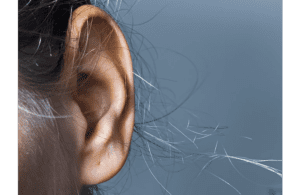
Photo from Pexels
Sudden onset sensorineural hearing loss — sometimes referred to as sudden deafness — occurs in anywhere from 11 to 77 per 100,000 people per year in the U.S.
There have been a handful of case reports of COVID-19 patients having such hearing loss, including a report in BMJ. But as more COVID-19 vaccines become available, there are a small but growing number of reports of vaccinated individuals reporting sudden hearing loss — 14 reports among nearly 31,000 entries (or 0.05%) in the Vaccine Adverse Event Reporting System.
A Phase 1 clinical trial for Johnson & Johnson’s COVID-19 vaccine included a 21-year-old who experienced sudden hearing loss 34 days after vaccination. Neither the investigator nor Johnson & Johnson concluded that the event was linked to the vaccine.
[Related: Tinnitus reports grow amid COVID-19 vaccinations]
Several recipients of the Pfizer and Moderna vaccines have experienced sudden hearing loss, according to data from the Vaccine Adverse Event Reporting System.
To date, however, there is no clear evidence that COVID-19 elevates the risk of the condition. “I have not seen any formal report on this topic,” said Dr. Steven D. Rauch, vice chair for clinical research in Harvard Medical School’s department of otolaryngology.
“My colleagues and I at Mass. Eye and Ear certainly are seeing sudden SNHL during this time period, but we always see SSNHL, so it is impossible to discern anecdotally if there is any change in this incidence,” Rauch said.
It is plausible, however, that COVID-19 vaccines may be escalating symptoms for patients with a history of ear problems.
Rauch suspects that there may have been an uptick in post-vaccine hearing loss symptoms among people with pre-existing inner ear disease — such as Meniere’s disease, autoimmune inner ear disease (AIED) and vestibular migraine — especially after the second dose. Though, he cautioned that his view is anecdotal.
Said Rauch: “These effects seem to occur within the first two weeks post-injection and sometimes within just a few days. They appear to be temporary. The actual likelihood of this phenomenon and its clinical course are not well-defined — it’s just too soon to know.”